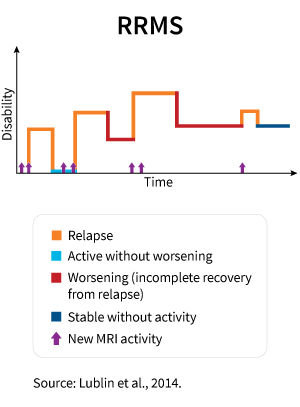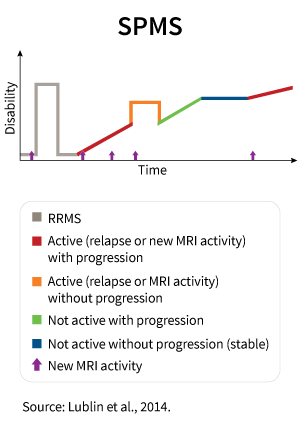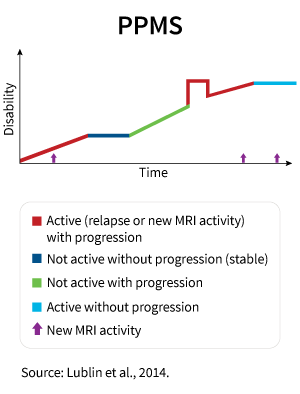Polegnyn Nemeara
Aes Sedai

March is considered Multiple Sclerosis Awareness month here in the United Sates. Below is an overview of what it is and how this autoimmune disease can affect the body. Later this month, we'll discuss unique challenges faced by people-of-color and those undergoing gender-affirming hormone therapy. Support for anyone with Multiple Sclerosis is critical. Because of this, first-hand account from our own community will also be provided in hopes that it will help someone you know.
What is Multiple Sclerosis?
Multiple Sclerosis (or "MS") is a neurological-focused autoimmune disease where the body attacks the myelin coating enveloping nerves in the body. Once the myelin is damaged, the exposed nerve can no longer function as nerves with healthy myelin would, leading to (but not limited to) numbness, tingling, balance, mobility issues, slurred speech, bladder issues, and cognitive and subsequently mental health issues. Diagnosed as early as 1380 AD, this disease's cause and definitive diagnosis has remained elusive and challenging for anyone seeking comfort, remission(s), and especially a cure.
Timeline of MS-related Discoveries
It's a safe assumption there were undocumented or undiagnosed cases of Multiple Sclerosis prior to 1380 when Lidwina of Schiedam (later to be known as "Saint Lidwina", the Catholic patron saint of chronic pain.*) fell and broke her rib while ice skating. Her symptoms beginning after her fall were similar to that of MS despite counter arguments by modern day neurologists, specifically Dr. Thomas John Murray. Regardless, if she actually had MS or not, it wouldn't be until roughly 1794 for Augustus d’Este, a relative of the British royal family, to receive the first definitive diagnosis of Multiple Sclerosis. Since then, there have been numerous studies, lectures, and treatments focused on MS in hopes for a better quality of life if not outright cure. Sources: https://mymsaa.org/publications/motivator/summer-fall12/cover-story/timeline; linked names point to their respective Wikipedia entries
* Please opt in to the Spirituality & Religion forum via your usergroup admin if anyone would like discuss her canonization further.
Types of MS
As evidenced by Lidwina of Schiedam and Augustus d'Este's diagnosis, Multiple Sclerosis does not follow a "one-size fits all" model. Not only does its symptoms overlap with many different conditions, but there are also various types and severities of MS once an official diagnosis has been issued.
- Clinically Isolated Syndrome (CIS) — Though still not technically considered MS, this stage includes hallmark symptoms that may or may not develop into Multiple Sclerosis. Anyone experiencing these symptoms (not listing them here because there are many and I don't want to concern anyone...) for 24 hours or more should consult their doctor. Read more about Clinically Isolated Syndrome HERE.
- Relapsing-Remitting (RRMS) — This is the most common course Multiple Sclerosis takes according to the National Multiple Sclerosis Society. This particular type of MS is characterized by attacks or relapse of symptoms. During a new attack, the progression of disability remains stable instead of accumulating on top of previous hindrances caused by symptoms of Multiple Sclerosis. Read more about Relapsing-Remitting Multiple Sclerosis HERE.

- Secondary Progressive MS (SPMS) — This type of MS follows the initial pattern of Relapsing-Remitting MS but also includes intermittent worsening and/or relapses of symptoms as time goes on. Read more about Secondary Progressive Multiple Sclerosis HERE.

- Primary Progressive MS (PPMS) — This type of Multiple Sclerosis is essentialy a gradual and continual worsening of symptoms and disability. No relapses, attacks, or remissions. As seen in the graphic, plateauing symptoms are possible but the body continues to damage itself despite a resulting disability not necessarily showing until enough damage makes it apparent MS is continuing to worsen. Read more about Primary Progressive Multiple Sclerosis HERE.

Various Treatments and Therapies
Various treatments and therapies have been developed since the late 1800s. From lumbar punctures to modern medicines, treatments are continually evolving to meet the progression of research into how Multiple Sclerosis presents itself and can be treated. As of 2012, there are nineteen modern treatment options for those with Multiple Sclerosis and its symptoms to discuss with their doctor.
As with every disease, there are also alternative methods to treat Multiple Sclerosis. Bee Venom Therapy (aka "Bee Sting Theraphy") is a somewhat controversial alternative treatment method using bee venom. It is thought bee stings have an anti-inflammatory affect on the nervous system which counertacts the body's attacks. However, studies are limited and an unrelated allergy to bee stings has its own catastrophic results. ( Source: https://www.sciencedirect.com/topics/nursing-and-health-professions/apitherapy )
Last edited:



